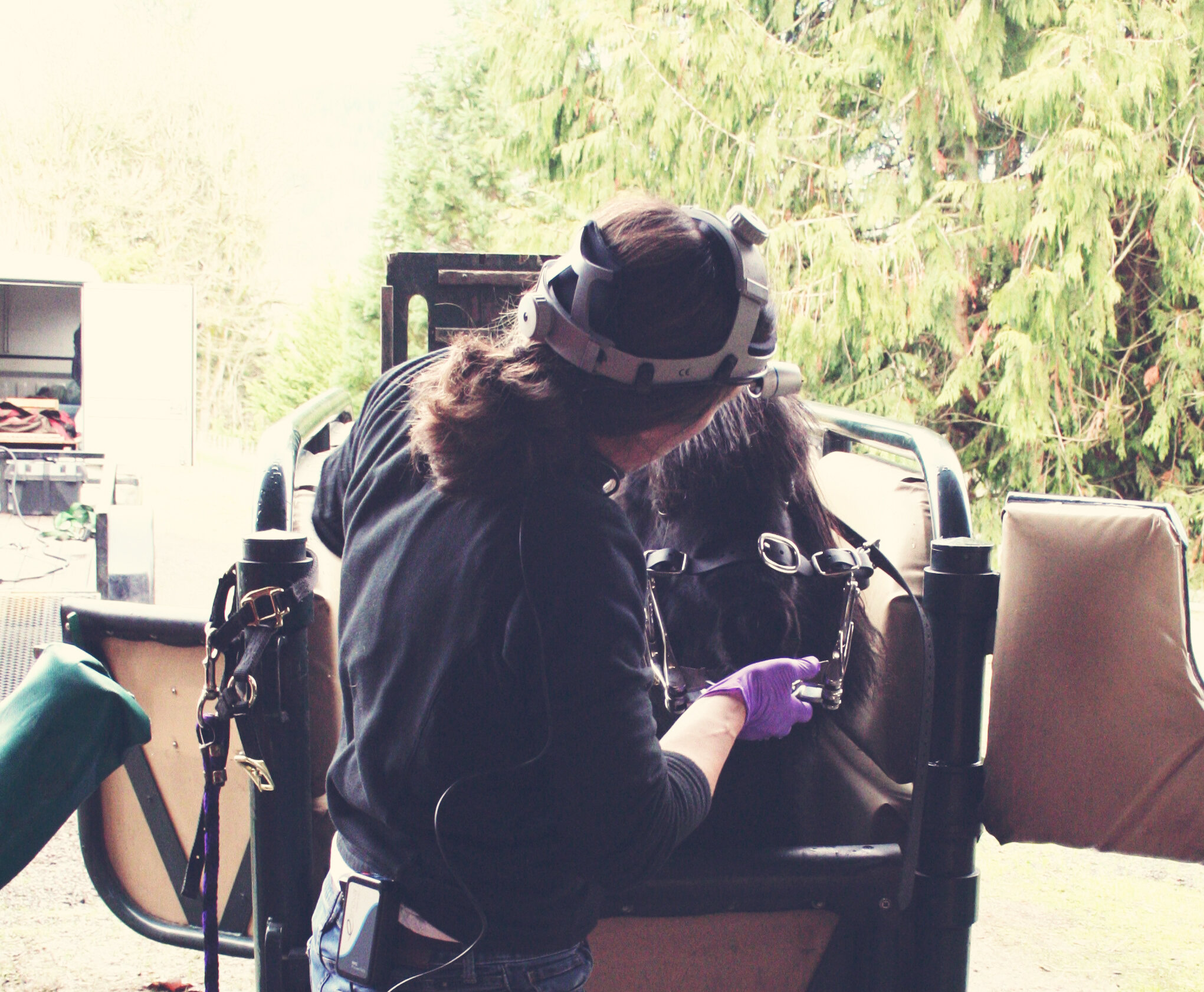The Importance of Routine Dental Care for Horses
From a young age, horses benefit from a consistent care schedule
Dentistry is an important part of your horse’s general health care. An oral exam is recommended yearly to help monitor normal wear and identify potential problems.
Discomfort in the mouth can lead to poor weight gain, decreased performance and bad behavior even when not bridled. Depending on the age of your horse and oral exam findings, a dental procedure may be recommended once to twice a year. For a thorough and safe dental procedure to be performed the horse is sedated and a speculum is placed in the mouth. With motorized dental equipment, each tooth can be addressed efficiently and accurately.
Routine dental care is important due to the unique structure and function of horse’s teeth. Horses have a combination of brachydont and hypsodont teeth. The simple (brachydont) teeth are the first premolars (wolf tooth) and canines that have a distinct crown and root, but have no function for the domestic horse. The incisors and molars (cheek teeth) are hypsodont, like the molars of ruminants (cows, goats and sheep etc). This type of tooth has a large body that continues to erupt into the horse’s mouth as they are worn down by fibrous feed material. Most of the tooth is below the gum line in younger horses and continues to develop as it enters the mouth. The root of young teeth extends into the maxillary sinuses and mandibles creating “dental bumps” in 2-5 year olds.
All teeth are constructed of enamel, dentin and cementum, but the hypsodont type have multiple layers of these strong materials to provide high tensile strength for a tough grinding surface. Enamel is the hardest material in the body, but is brittle. Therefore, it is supported by the surrounding dentin and cementum layers. As the tooth is sanded down through mastication the softer dentin and cementum are lost first leaving the sharp enamel behind. These sharp enamel points rub on the horse’s cheeks and tongue while eating. A routine float removes these uncomfortable points from the outside of the upper molars and the inside of the lower molars. Calluses and abrasions (ulcers) created by the sharp points heal quickly once the teeth are smoothed.
Beyond requiring routine care, other problems may arise from improper tooth development, eruption and wear. Improper development and eruption can lead to poor alignment and decrease the longevity of the tooth. Foals have three sets of molars that are large and fill the entire mouth. Starting at 2.5 years of age the deciduous (baby) teeth are replaced by the mature adult teeth. All 40 permanent teeth are typically erupted by 5 years of age. As the deciduous teeth wear down and start to become loose, they can fracture, become entrapped, and inhibit adult tooth eruption. Twice yearly oral exams starting at 2-2.5 years of age are important to identify possible “caps” (remainder of deciduous teeth that are still attached). “Caps” are easily removed to aid in comfort and eruption of adult teeth if they do not fall out on their own. However, if a deciduous tooth is extracted too soon the development of the adult tooth can be stunted. During eruption further cementum and dentin is added to the outside and center of the tooth (respectively). If this development is disrupted the tooth can become weak as it ages and fracture easily. Knowledgeable extraction of “caps” is important for this reason.
Improper tooth wear can be caused by either abnormal teeth (as discussed previously) disrupting normal chewing, or abnormal chewing with normal teeth. When processing their food, horses move their jaw in a circular motion. For the specialized teeth to be effective they must align and grind together smoothly. Abnormal chewing can occur from a malformation or injury to the structures of the head (maxilla, mandible, masseter muscles, TMJ etc), or through avoidance of a painful tooth. In these situations, there is increased pressure on certain teeth causing periodontal disease and loosening. Periodontal disease is inflammation and separation of the gingiva from the tooth. A space is created from the gingival recession where feed can pack in between the teeth and infection can occur. With infection present, and continued increased grinding forces, the affected teeth will become loose. A skilled and knowledgeable veterinarian can address imbalances and dental health issues, to improve the longevity of your horse’s teeth.
A horse’s mouth is constantly changing throughout its life and serves an important role for the general health and happiness of your horse. With that in mind please make sure to speak with your veterinarian about your horse’s dental health and incorporate dental care into your routine visits.


